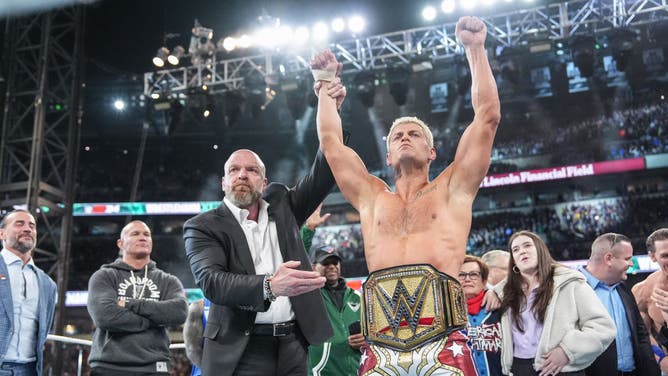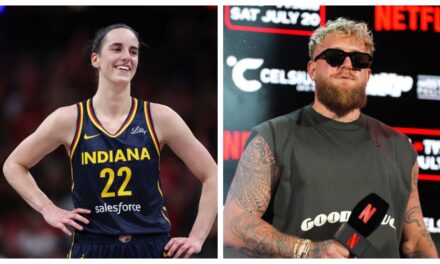We support our Publishers and Content Creators. You can view this story on their website by CLICKING HERE.
WWE is in the midst of a record business period in terms of ticket sales, revenue, and broadcast rights. The company is arguably as popular as it has been since the boom period in the 90s, commonly referred to as the Attitude Era.
But so-called wrestling journalists have one major gripe with the current product: there isn’t enough diversity for their liking.
Reporters asked Paul “Triple H” Levesque, who is head of creative, about the lack of “black male representation” atop the company during the Bad Blood post-show press conference on Saturday.
Levesque quickly shut down the reporter, telling them that skin color is not a factor in WWE booking.
Watch below:
“I see everybody gets the opportunity. I don’t see the difference in anybody. I don’t see the color, I don’t see the nationality, I don’t see any of it. I just see talent. I don’t see the difference between men and women. I see talent,” said Levesque.
“We tell stories with those talents. How they can handle those stories and represent those stories and bring those stories forward, I don’t keep track of any of that. I do what’s relevant and what’s best in storytelling and what’s being delivered the best, and that’s what goes.”
Journalists routinely try to browbeat corporate figures into succumbing to DEI agendas and quotas. Media figures want decision-makers to see color. And while DEI initiatives are great for cocktail parties and social media, DEI is often the antithesis of how to run a successful business.
Professional wrestling is one of the last true meritocratic industries in entertainment today. The new Netflix documentary “Mr. McMahon” emphasized that despite all of WWE’s past ills, the brand lives by one motto: do whatever is best for business.
Skin color be damned.
What’s amusing is that Levesque was pressed on the “lack of black men” on the card during an event highlighted by the shock return of The Rock, a black man. The current plan is for The Rock to main-event WrestleMania in April.

PHILADELPHIA, PENNSYLVANIA – APRIL 7: Cody Rhodes (R) and Triple H celebrate during Night Two of WrestleMania 40 at Lincoln Financial Field on April 7, 2024 in Philadelphia, Pennsylvania. (Photo by WWE/Getty Images)
The idea that WWE should jeopardize its business in the name of diversity is foolish and emblematic of our media culture.
The two biggest stars in the company are Roman Reigns and Cody Rhodes, who are Samoan and white, respectively. And, again, based on the numbers, it is working.
It’s not that WWE hasn’t pushed black men. It has. Big E and Bobby Lashley were recently world champions. WWE booked The New Day, a trio of three black men, as its top stable of the past decade.
Black talents are pushed when individual black talents move the needle. If a black male happens to break through, you can rest assured that WWE will elevate that performer.
But WWE is not going to force an undeserving performance atop the card and risk derailing its current momentum simply to appease a bunch of woke bloggers online.
Other brands in entertainment should take note.
There is a reason WWE continues to grow while sitcoms, films, and talk shows experience record declines.

 Conservative
Conservative  Search
Search Trending
Trending Current News
Current News 





